On the Sheep’s Back

As seen in Bush Journal, Volume 06
Miniature dachshund Esme is the first to greet me followed by Sarah Ryan, who’s just stepped off the verandah of her century-old homestead.
“Come in,” she smiles warmly.” I didn’t even hear you arrive until Esme started running towards the door.”
Not much of the building has changed in the 18 years since Sarah and her husband Trevor have lived here. Nor in the decades before that: Trevor’s great-grandfather Henry meticulously rebuilt the home after it burnt down – firing each brick in a kiln on the property.
“It’s hard to pinpoint the exact timeline [of when the homestead burnt down], but from what heritage researchers have discovered the house was rebuilt sometime around 1913, the same time as the Quandi pub was built,” Sarah explains as Trevor nods in agreeance. “The same bricks and the same pattern are used.”
“We’ve only changed the kitchen and living area,” she continues. “There are a lot of leak issues.”
“You can see the sunlight through there,” Trevor points to the roof above the kitchen.
Sarah laughs: “Yeah, that’s where the possums come through.”
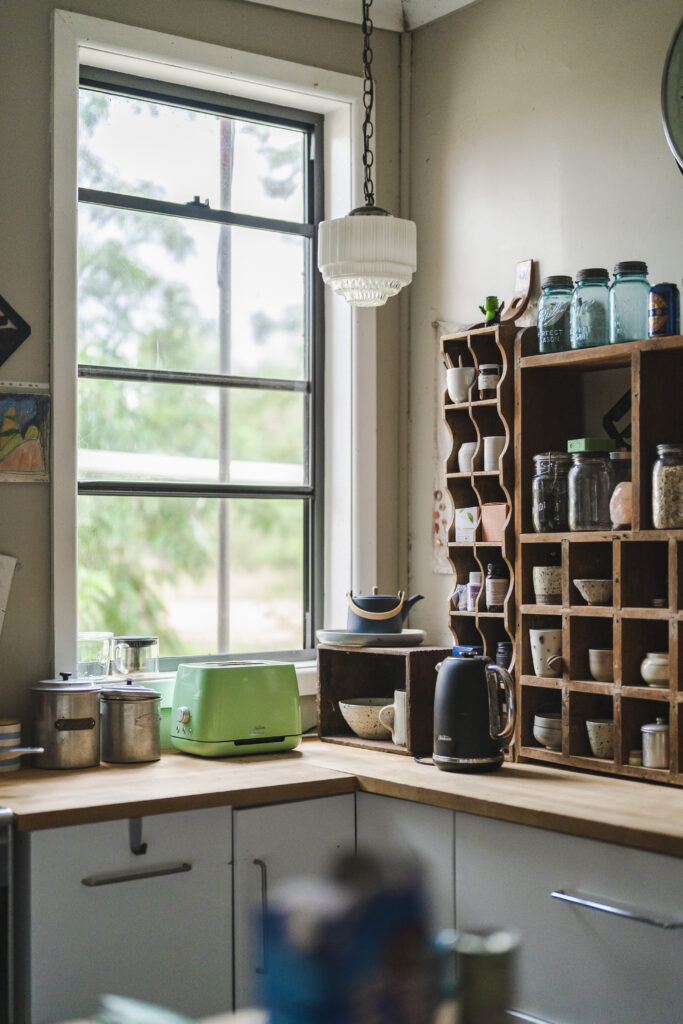

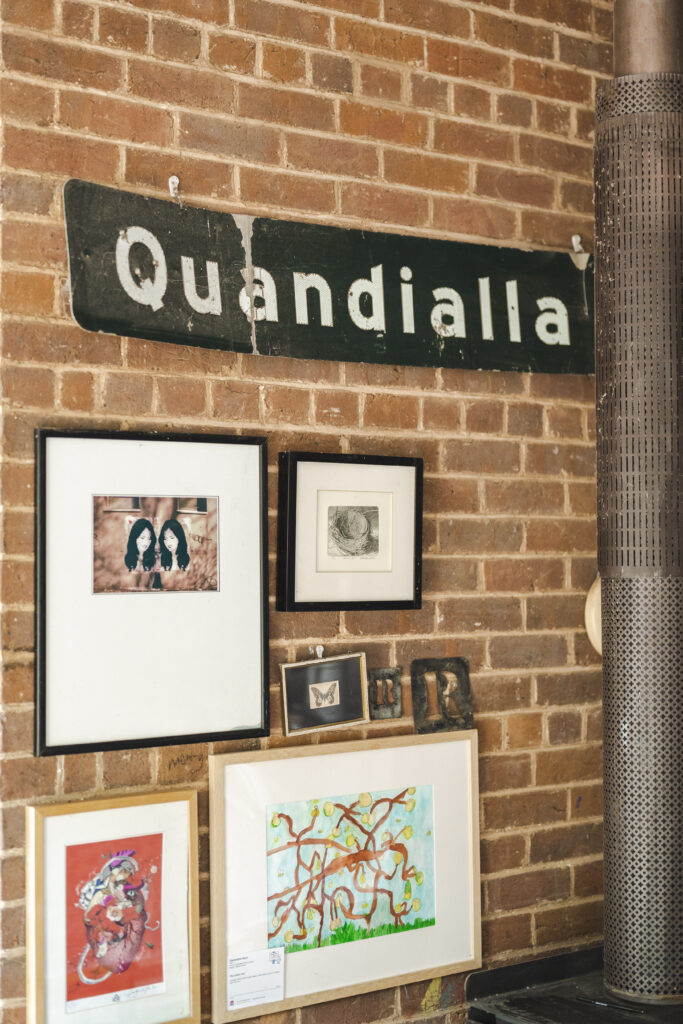
Their sheep property Richmond is 5km west of Quandialla in central western New South Wales. The land is wide, flat country with clay-based soils that shift from heavy grey to red loam, and is dotted with native grasses with nostalgic names like kangaroo, wallaby and windmill. Grey box, belah and myall trees thrive on the flats, while red river gums stand loftily along Wah Way Creek, their roots planted deeply along the waterway.
The Weddin Mountain Ranges peep up beyond the boundary. Though almost 50km away, the crescent-shaped undulations are a striking backdrop, in a shade so blue they almost blend into the skyline.
“We love it here and we love our home. I’ve always been fond of old homes and the history they hold,” Sarah says as she makes us a cup of coffee. “Trevor’s been here his whole life so has a big connection to the property and the land.”
Sarah and Trevor are the fourth generation of their families to live in the Quandialla district, known as Quandi to locals. It’s prime grazing country, perfect for fattening livestock. It’s also in the New South Wales wheat belt, making it a prosperous area for crop production.
“You wouldn’t believe the number of properties which have been sold up around us,” Trevor says. “We’ve got neighbours selling their properties to massive cropping companies and moving on with their lives. It’s very sad.”
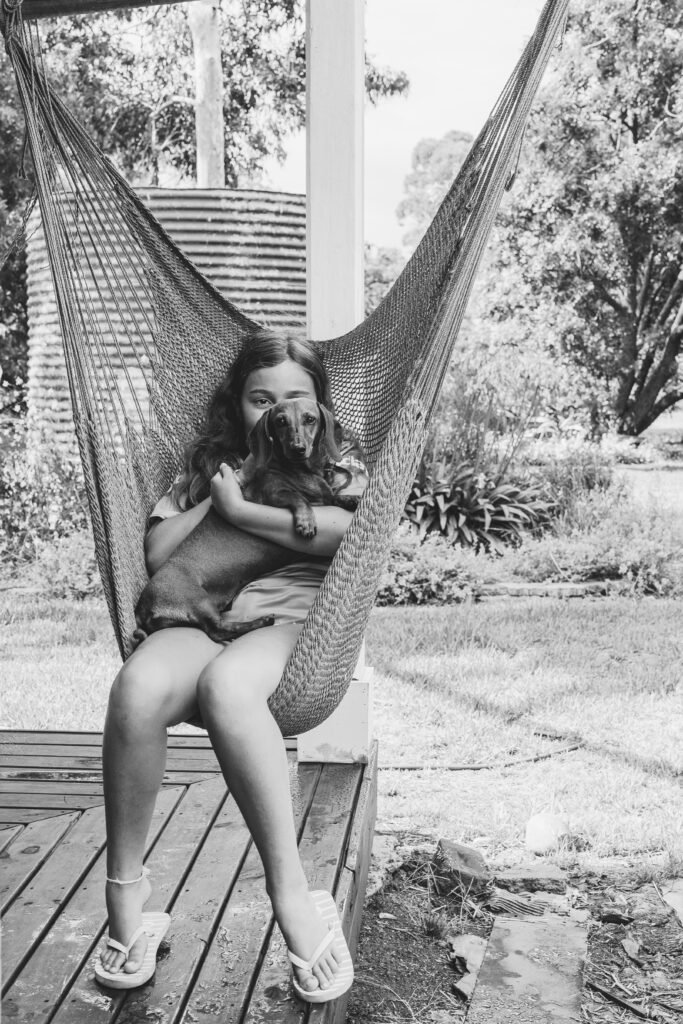
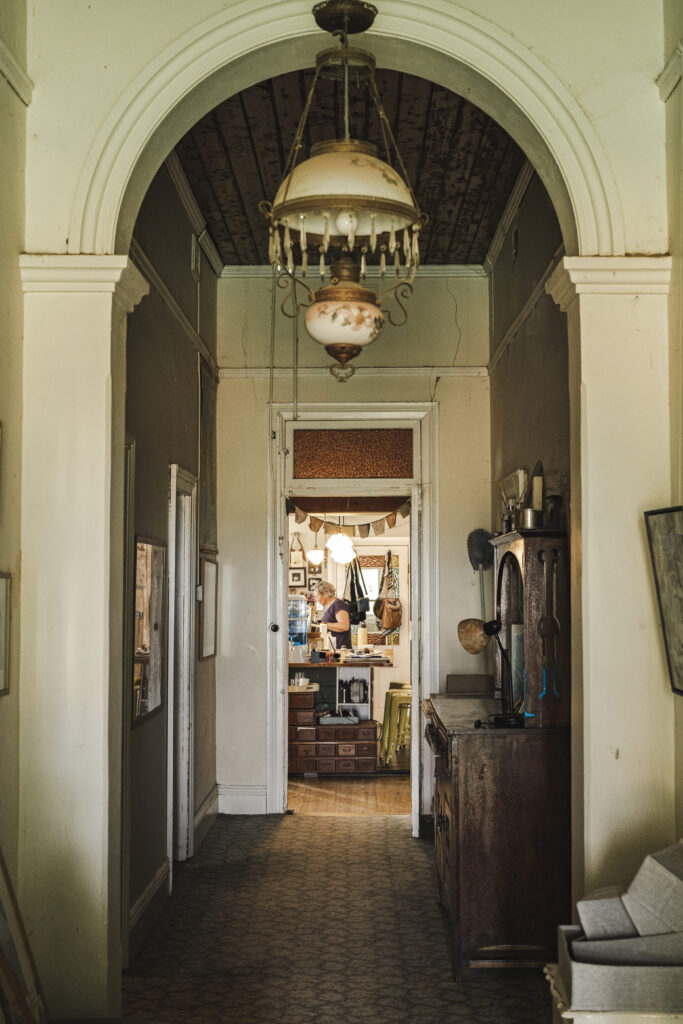
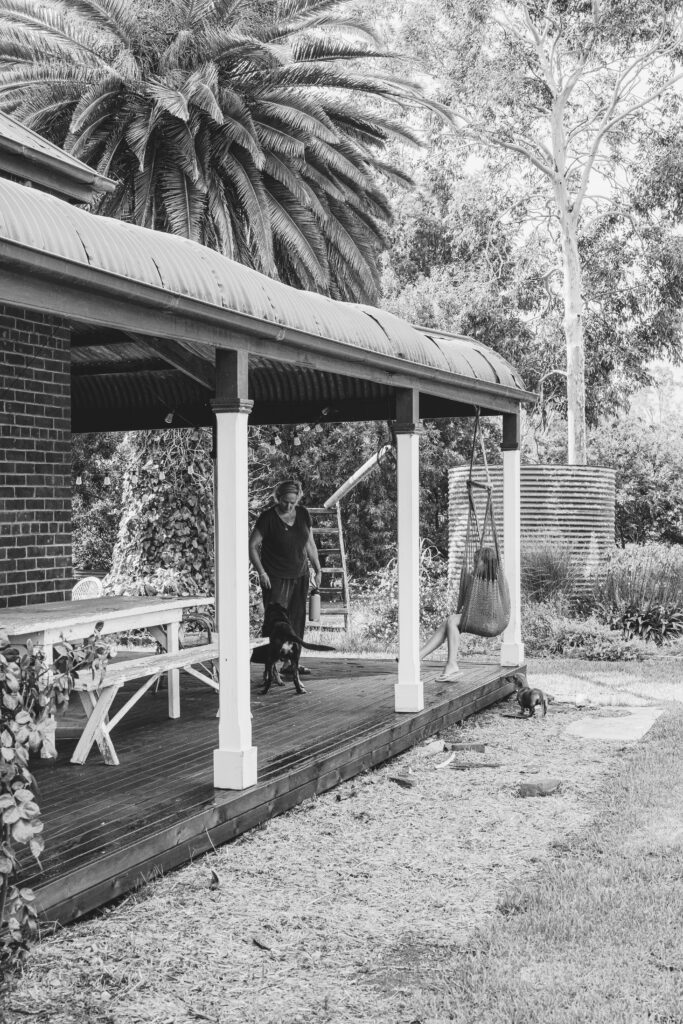

But Sarah and Trevor have their feet planted firmly on the ground of the property they love, and share with their children Reuben (16), Monty (14) and Clementine (10). Richmond is steeped in pastoralist history which the family honour in their homestead and the businesses they run: Sarah’s Quandialla Candle Co and Trevor’s Richmond Merino Stud.
“The McNamara’s on my grandfathers side have been in this area since the 1840s,” Trevor says. “They had land around the Bland [Shire], towards Barmedman.”
History runs deeply through his operation. His great-grandfather Henry bought the property in 1899 after marrying his great-grandmother Susanna, and 50 years later, his grandfather Gus established a stud. He bred a large-framed merino unique to the district and sold mostly locally.
“Back in those days a lot of people had studs – a lot more than today,” Trevor says. “If you had merinos, you had a stud, and there would have been at least half a dozen of these studs in the district.”
But when Gus died in the 70s, the stud went with him. Richmond became a grazing enterprise and when Trevor returned home in the 90s after a stint jackarooing up north, he worked with his mother Mabel to re-establish the flock. It was during this time he became reacquainted with Sarah at the local pub, years after meeting at school.
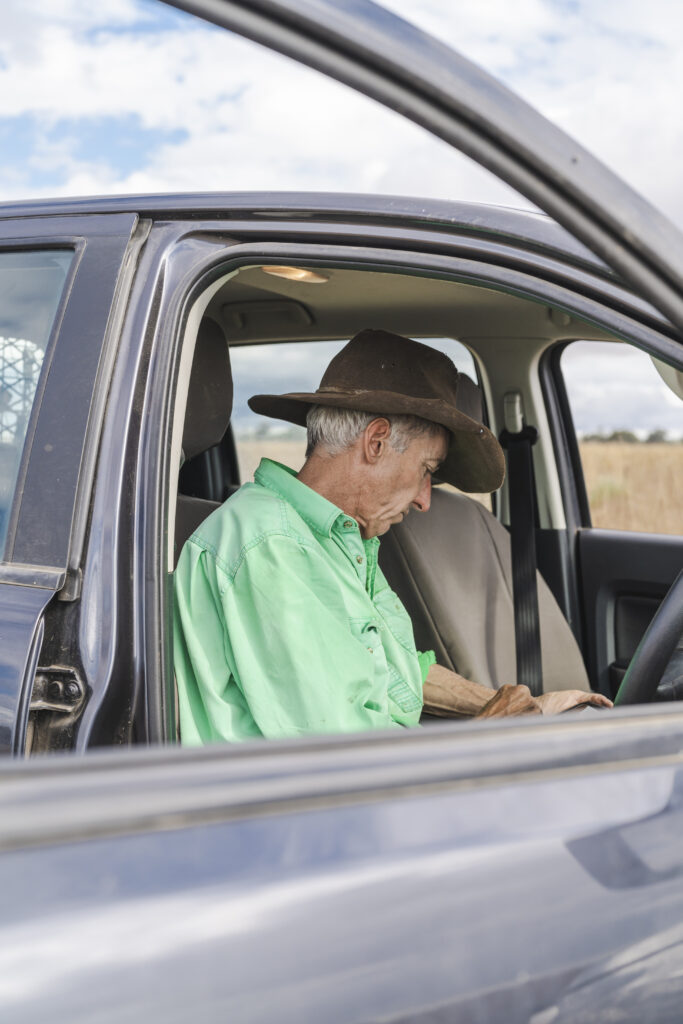
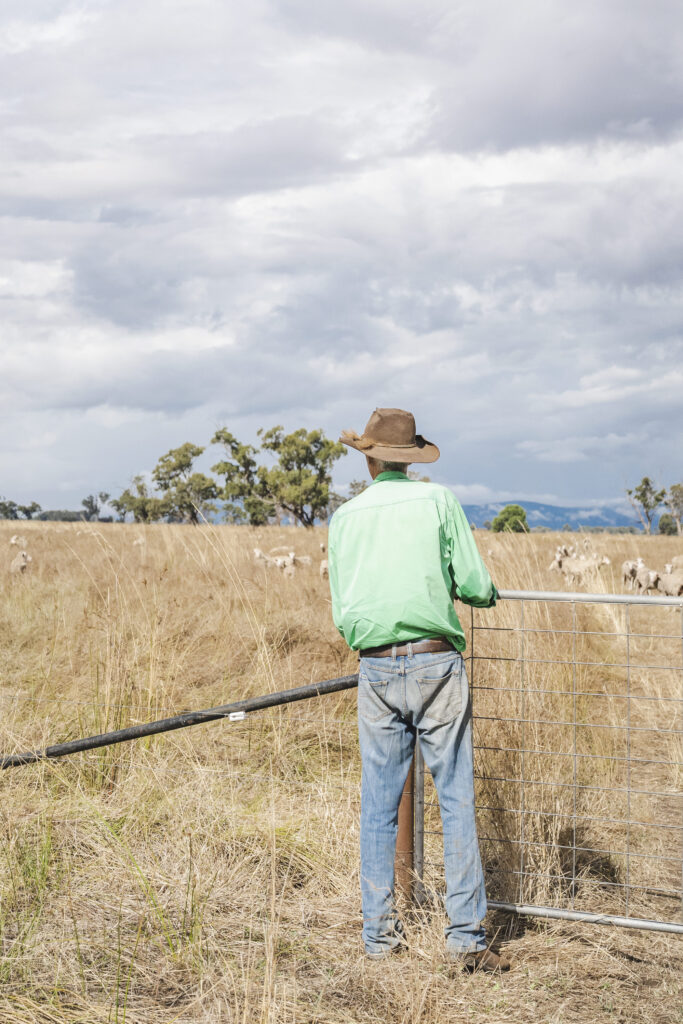
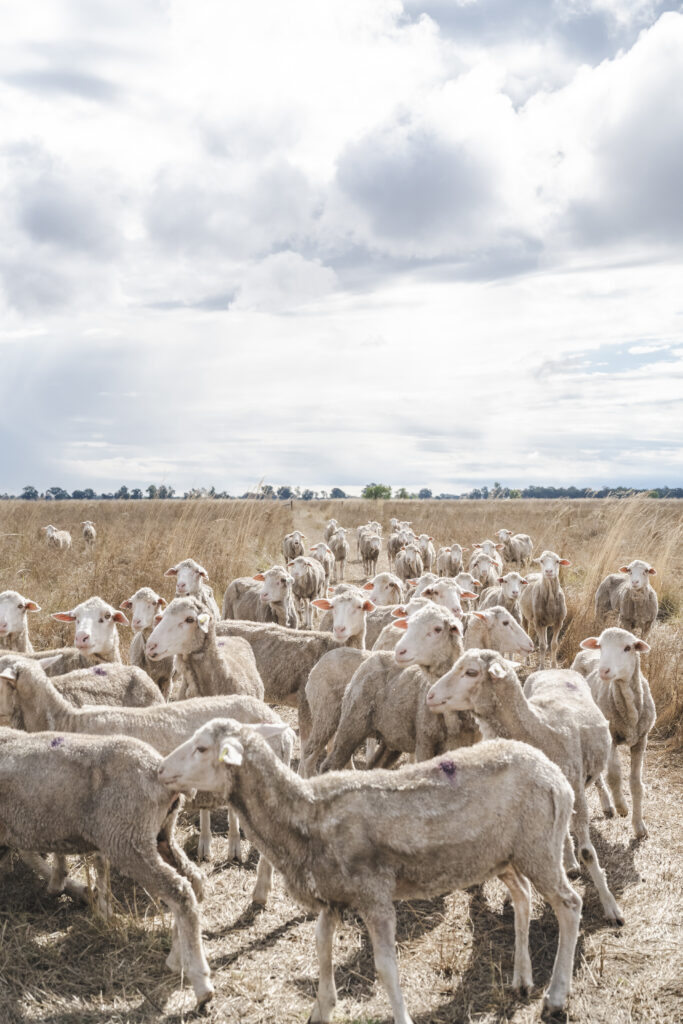
“We were both Quandi primary school kids but on different bus routes,” she laughs. Sarah grew up on a nearby sheep property Donadabu – but spent more than a decade away in Sydney – first at boarding school, then arts college, followed by some general floating around.
“I just never quite knew what to do after my degree,” she says. “I was thinking about heading to Japan with my cousin and teaching English over there, so I moved back home first to save money.”
But then she met Trevor. After they married in 2003, Trevor began to cultivate his own line of merinos with the help of industry stalwart Charlie Massy of Svern Park. 30 years after the original Richmond Merino prefix was dissolved, he registered the business once again and the stud was revived.
“[It] organically grew from the early 2000s,” Trevor says. “Before I knew it, there were a bunch of woolgrowers interested in my rams, and so I just went with the flow of it.”
Richmond Merinos is a progressive stud focused on breeding productive and sustainable sheep on native grazing country. Trevor’s rams have wrinkle free bodies and breeches – removing the need for interventions like mulesing and back-lining. He doesn’t use pesticides, fungicides or herbicides and is committed to building a naturally-resilient ram on a regenerative ecosystem.
“The original stud stopped back in the 70s and the industry and breeding genetics have changed dramatically,” Trevor says. “It was best for me to start fresh with the genetics we now have available, but I wanted to keep the Richmond name to pay homage to our past.”
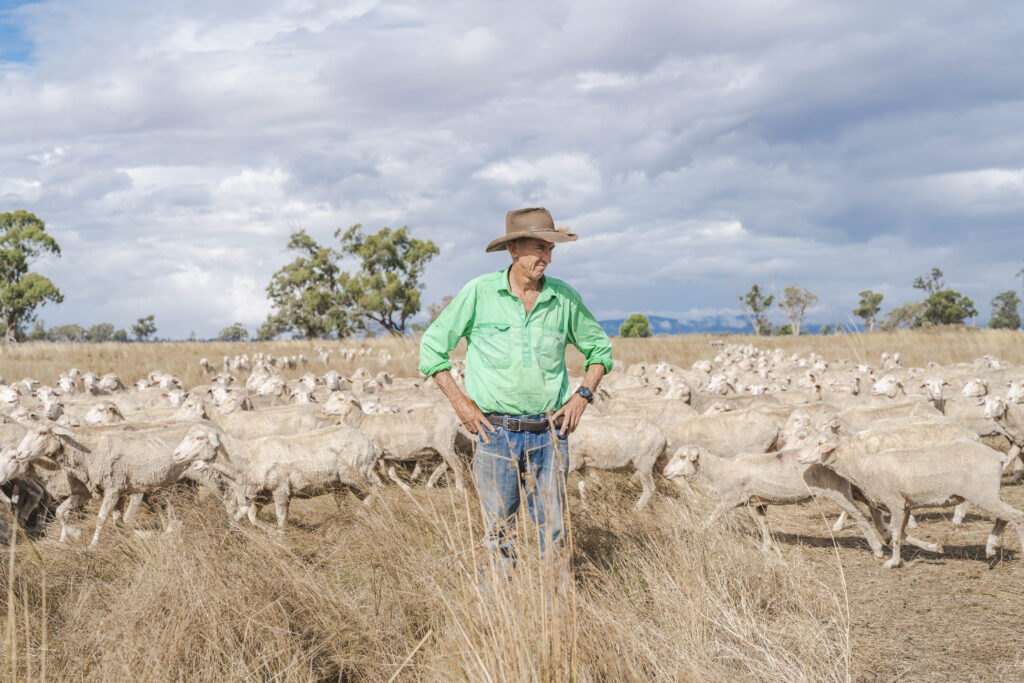
Inside the Ryan’s home, history seeps from the walls: from the pressed-tin ceilings in the living and kitchen area, to the hallway adorned with photos of the family, their heritage, and the land. There’s an entire wall of shelving dedicated to trinkets – tiny ceramic bird figurines, glass bottles, rusted tins and the odd clock.
“My parents are big antiques collectors,” Sarah says. “We were dragged around every antique auction and clearing sale. My mum gave me a fair few of the pieces you see on those shelves, the others are bits and pieces I’ve found in the paddocks.”
Sarah’s love of collecting old vessels formed the foundation of her business, Quandialla Candle Co, which she established in 2011 while pregnant with her daughter Clementine. Sarah’s range of scented soy candles, beeswax lip balms and diffusers are all handmade and poured at Richmond.
“I originally started Quandi Candles from the room tucked away behind the kitchen,” she says. “But I outgrew that room and now work from a small cottage just down from the house, where Trevor’s mum used to live.”
Sarah’s selection of fragrances is inspired by the seasons and experiences of living on the land. From blue sage and rosemary to tobacco and hay, her scents are always in demand. Every year, she releases a limited-edition Bush Christmas Candle that sells out within a day.

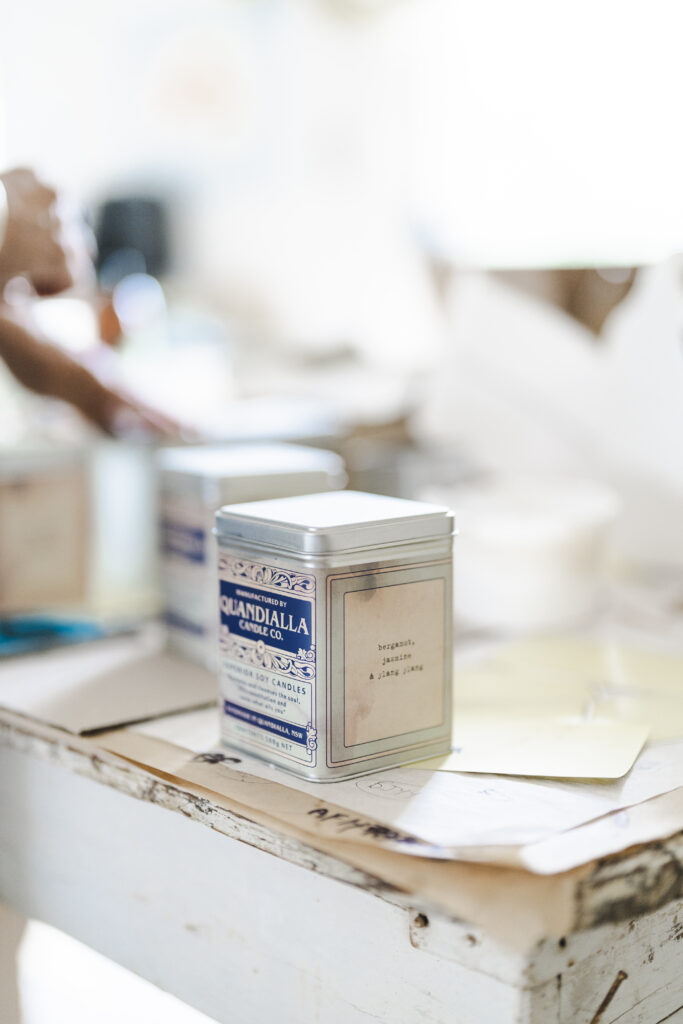
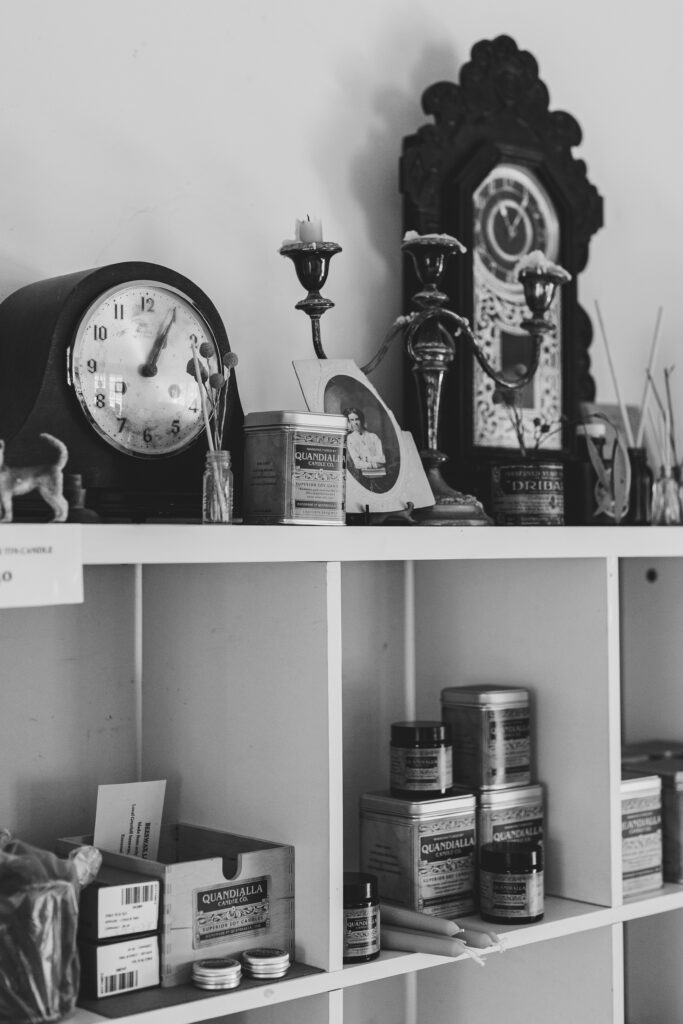
“Last Christmas it sold out in 20 minutes,” says Sarah in genuine shock. “I should probably just make more, but it’s the time of the year in which I just want to start winding down.”
Her online store is regularly sold out – and she has a waiting list for stockists. She keeps her wholesale list small to prevent burnout, and to ensure she can keep on top of orders.
Three days a week from morning to midday, Sarah pours candles and mixes scents. “You need to work out whether certain smells will complement one another or if they’re just going to end up not working,” she says. Every product is handmade, right down to the labels typed on a 1970s typewriter. Self-taught and solo-managed, Quandi Candles has reached critical mass, but Sarah has no interest in growing it further.
“I like the balance of being able to work but also spend time with Trevor and the kids,” she explains. “I like to be able to volunteer at the local school and help at the swim club. I couldn’t do that if Quandi Candles expanded.
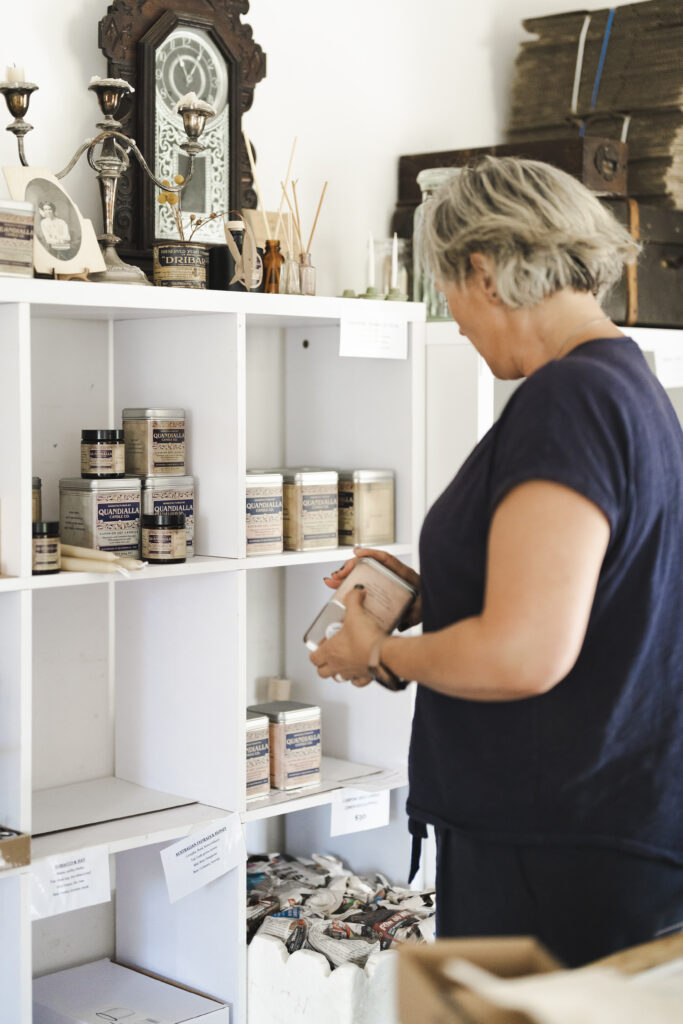
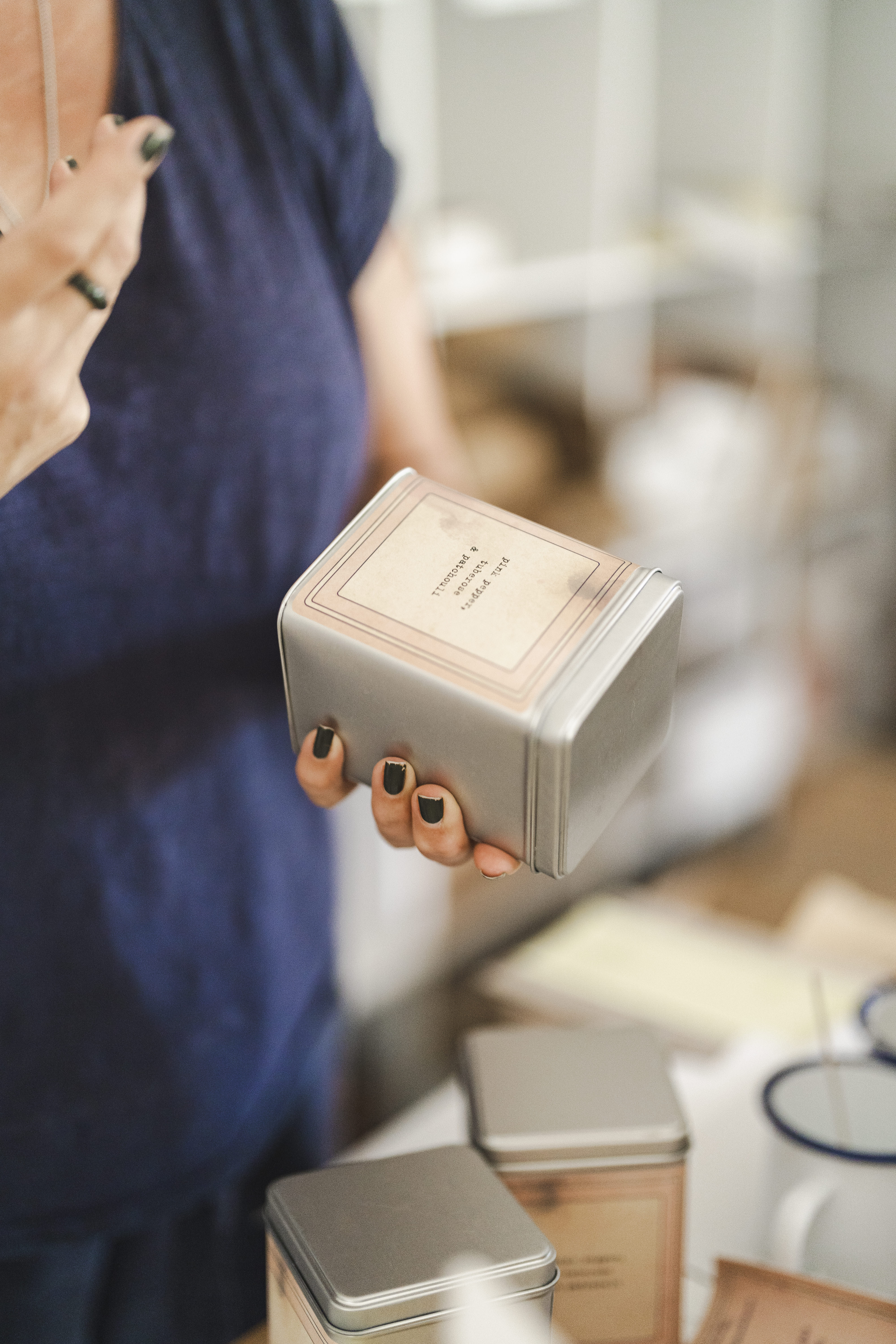
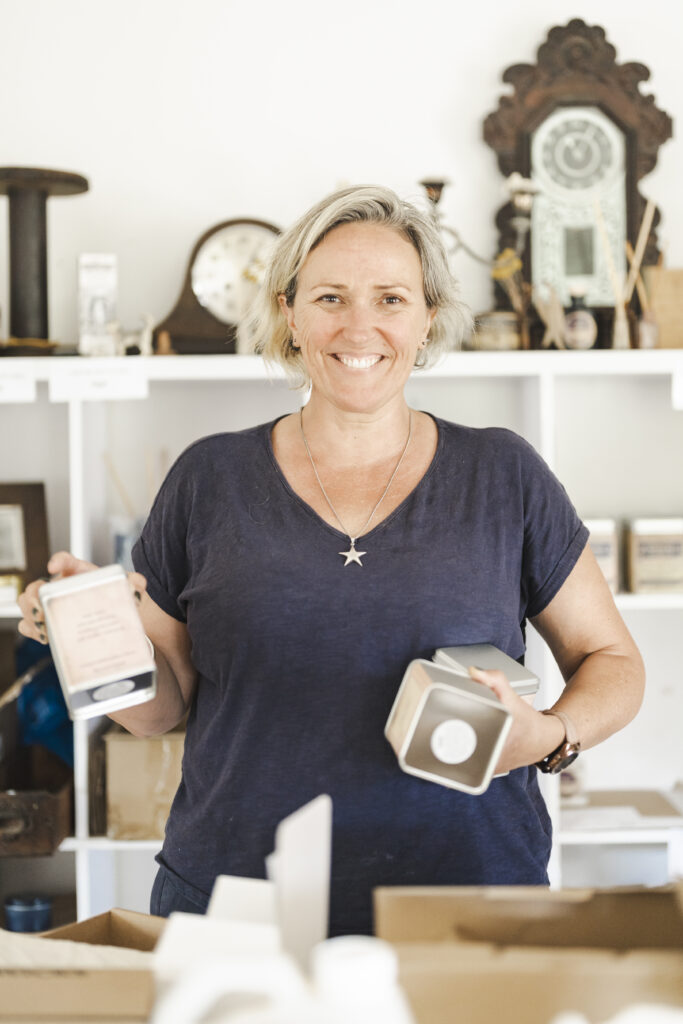
Trevor’s stud business is in a similar position: “I tend to try and focus on the quality of my rams rather than the quantity.” Richmond Merinos is increasingly becoming an island in a sea of industrial farming. There’s evidence of chemical spray drift on neighbouring properties that’s killing red river gums, studs are using data to increase the number of rams they sell, while housing sheep in sheds in the leadup to sale day.
“All our sheep run on native country,” counters Trevor. “They won’t look like something straight out of a shed or a catalogue. They’re a little less polished than some of the other larger studs.” But that doesn’t mean they don’t perform well. At the stud’s 2022 annual sale in September, all 120 rams were sold at a record sale average of $3,835 with the top going for a record $16,000.
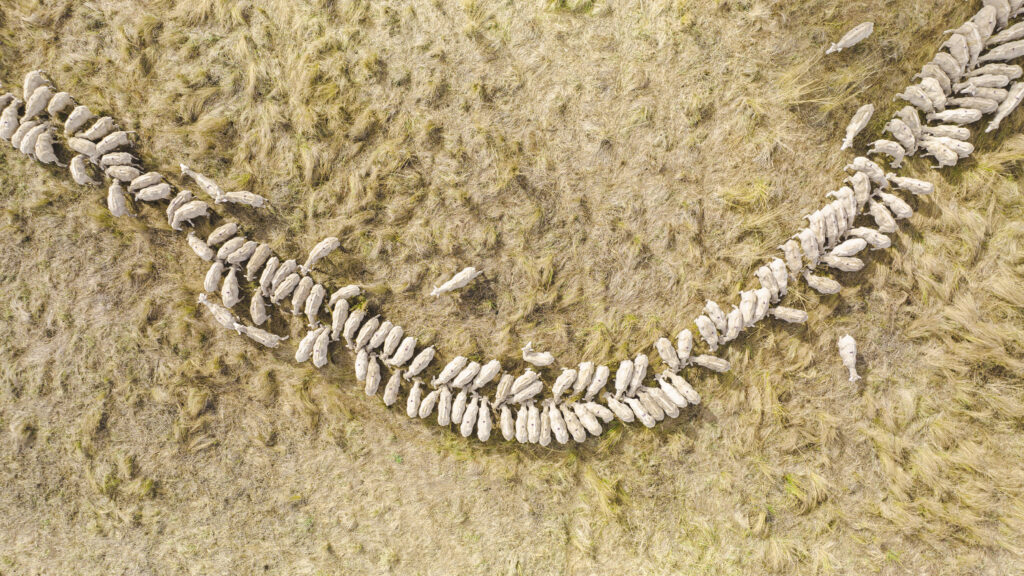
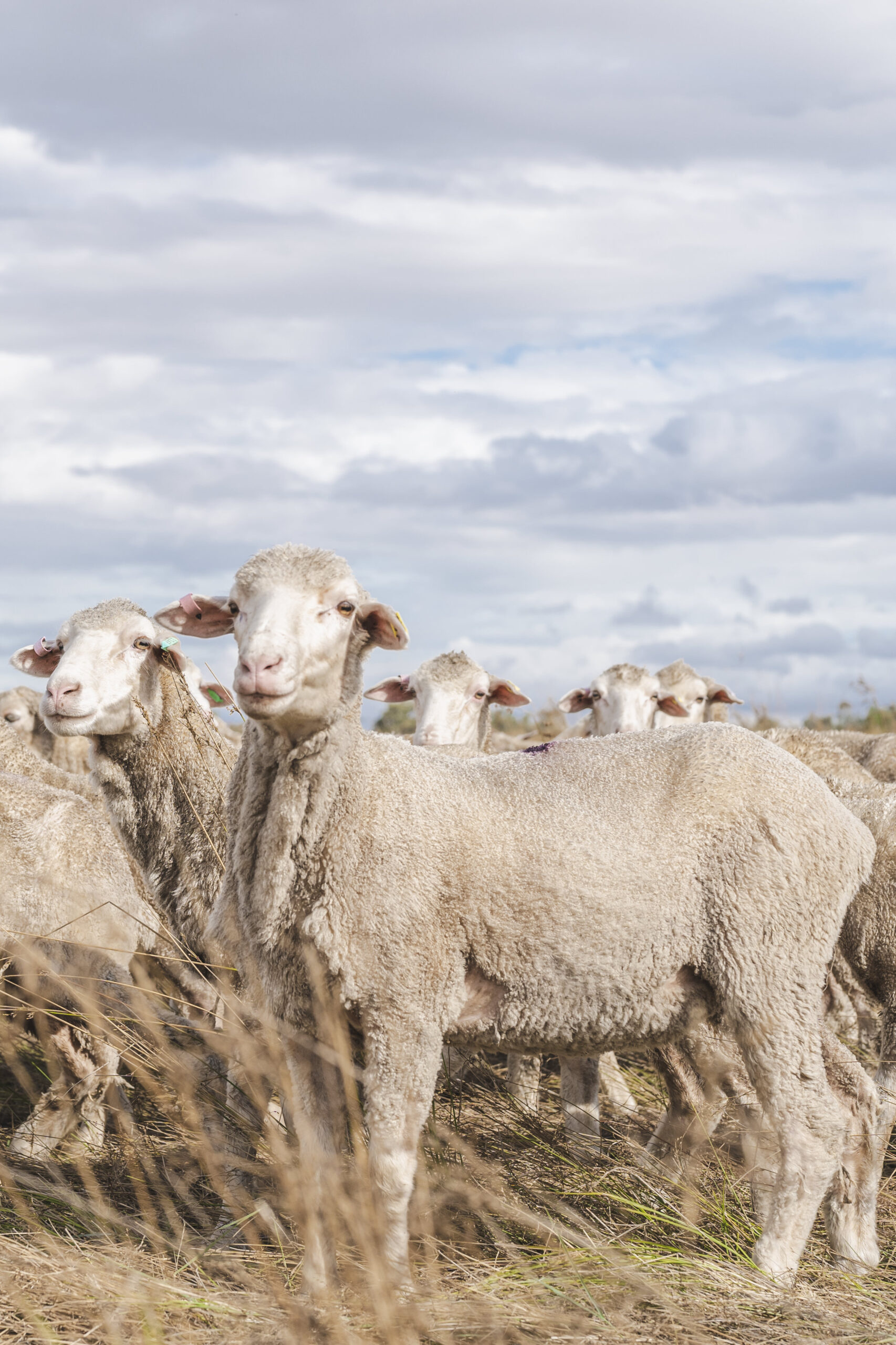

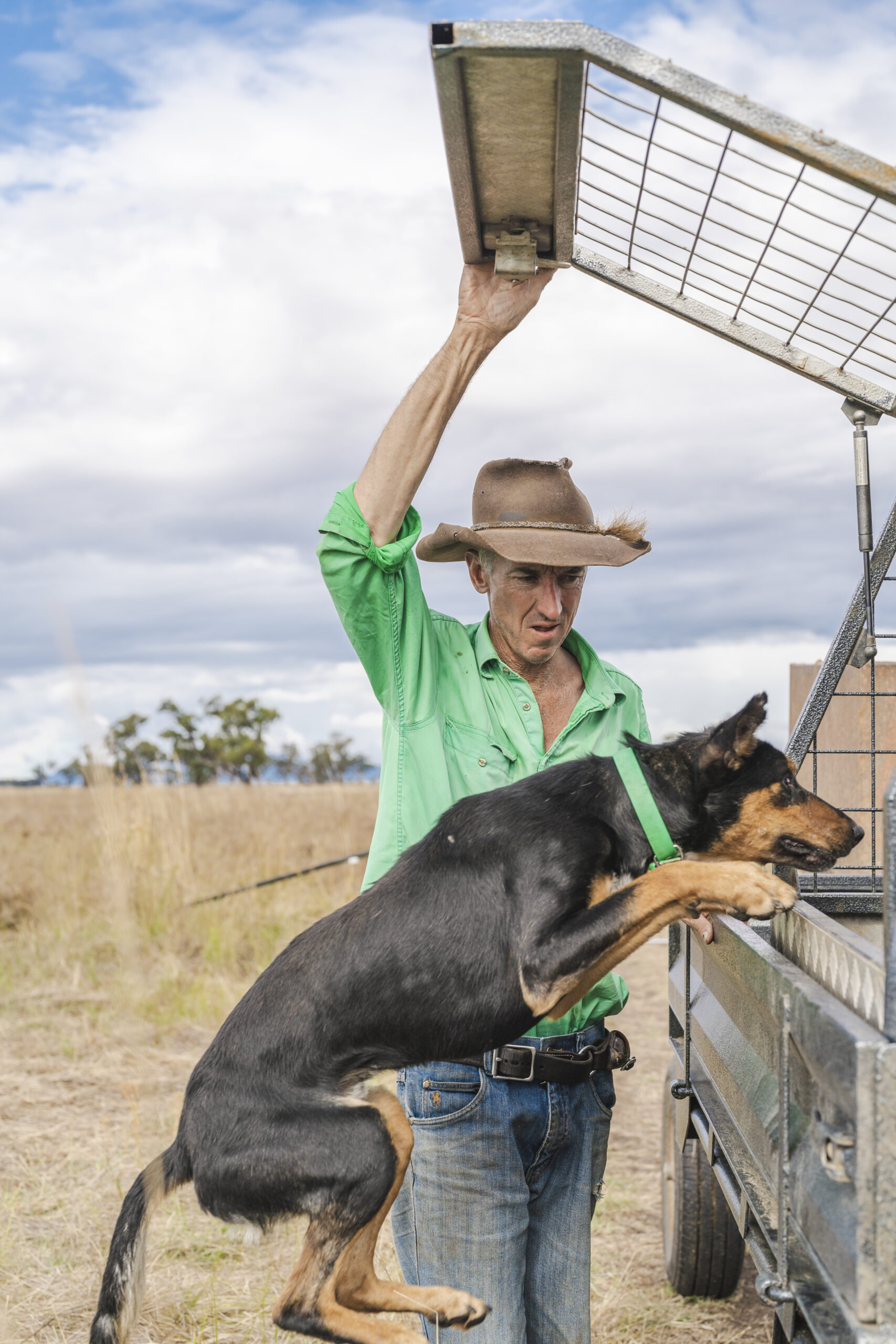
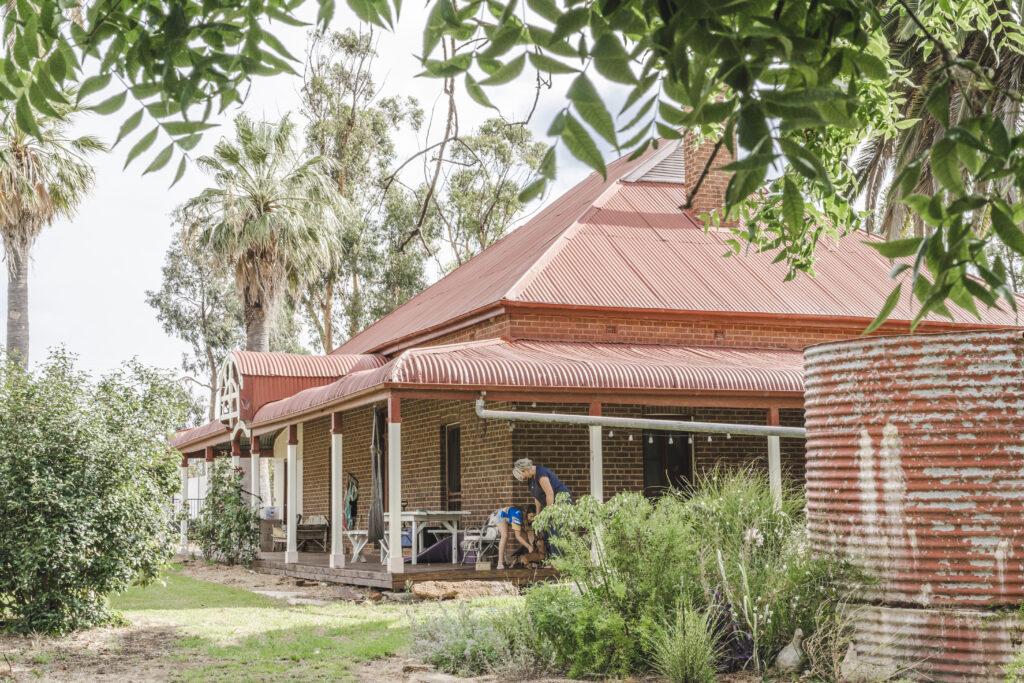
“There’s a threshold for both of us,” Trevor says, referring to the point at which they find their businesses. “Both are turning over income and making a nice financial input into our lives without the need to expand.
“We’ve come to realise that we’re happy at that threshold. Neither of us want to expand. We don’t want to take on employees or take on extra debt. We’ve put in the persistence, and it’s come to a point now where it’s consistent, and we’re happy with that.”
I take a moment to admire the Richmond homestead as I’m leaving my visit with Trevor and Sarah. It’s a testament to perseverance and adaptability – and is reflective of the people who live within it.
Sign up below to receive random newsletter mailouts when I can find the time, when I have new prints for sale, or in case Instagram shuts down and this is my only way to communicate with you in the future.

Info
It can be a little overwhelming taking the deep dive into marketing and communications. Let's talk over the phone or over a cup of coffee and see how we can work together to get your marketing strategy up and running.
© The Social Herd | Privacy Policy | Terms and Conditions | Shipping & Returns
